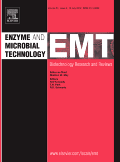
ENGINEERING IN LIFE SCIENCES
Scope & Guideline
Transforming Life Sciences Through Cutting-Edge Engineering Solutions
Introduction
Aims and Scopes
- Bioprocess Engineering:
Research aimed at optimizing biological production processes, including fermentation, cell culture, and bioreactor design, to improve yields and efficiencies in bioproduction. - Synthetic Biology and Genetic Engineering:
Exploration of genetic modifications and synthetic biology approaches to enhance microbial and cellular functionalities, including the development of engineered strains for industrial applications. - Microbial and Enzymatic Technologies:
Utilization of microorganisms and enzymes for various applications, including waste treatment, bioremediation, and production of bio-based products. - Biotechnology in Medicine and Health:
Application of engineering principles to develop biopharmaceuticals, diagnostics, and therapeutic interventions, focusing on the production and purification of biomolecules. - Environmental Biotechnology:
Research on the use of biological processes to address environmental challenges, including waste management, pollution reduction, and resource recovery. - Advanced Analytical Techniques:
Development and application of novel analytical methods for monitoring biological processes, including real-time analysis and automation in bioprocessing.
Trending and Emerging
- Sustainable Bioprocessing:
An increasing focus on sustainable practices in bioprocessing, including the use of renewable resources and minimizing environmental impact, aligns with global sustainability goals. - Artificial Intelligence and Machine Learning Applications:
The integration of AI and machine learning in bioprocess optimization and monitoring is gaining traction, enhancing predictive capabilities and process efficiencies. - Microbiome and Health Interactions:
Research exploring the role of microbiomes in health and disease is emerging, emphasizing the importance of microbial communities in therapeutic contexts. - Advanced Materials for Biotechnological Applications:
The development of novel materials, including biocompatible scaffolds and smart polymers, is trending, particularly in tissue engineering and drug delivery systems. - CRISPR and Genome Editing Technologies:
The use of CRISPR and other genome editing techniques is on the rise, facilitating precise modifications in organisms for various biotechnological applications.
Declining or Waning
- Traditional Fermentation Techniques:
As the field advances towards more engineered and optimized processes, traditional fermentation methods have become less prominent, with a shift towards integrating modern technologies and automation. - Basic Microbial Diversity Studies:
Research focused solely on microbial diversity without application to bioprocessing or biotechnological solutions has decreased, as the journal prioritizes studies with direct applications or implications. - Conventional Wastewater Treatment Methods:
Research exploring basic wastewater treatment methods is declining in favor of innovative approaches that incorporate biotechnological advancements for enhanced efficiency and sustainability.
Similar Journals

BioTech is a forward-thinking academic journal published by MDPI, specializing in the dynamic fields of applied microbiology, biotechnology, biochemistry, bioengineering, and biomedical engineering. Established for promoting impactful research from 2021 to 2024, this journal aims to bridge the gap between laboratory findings and practical applications, serving as a vital resource for researchers, practitioners, and students alike. With its Open Access model, BioTech ensures that groundbreaking innovations are freely available to the global community, fostering collaboration and knowledge transfer across disciplines. In the 2023 rankings, BioTech holds a strong position in Q2 and Q3 quartiles across various categories, reflecting its commitment to high-quality research output. Being indexed in renowned databases, the journal enhances its visibility and reach, making it a preferred platform for sharing transformative ideas and discoveries in biotechnology and related domains. Set against the backdrop of Switzerland’s thriving research environment, BioTech is poised to become an essential resource in the rapidly evolving landscape of life sciences.

New Biotechnology
Shaping the Future of Biotechnology and MedicineNew Biotechnology, published by Elsevier, is a distinguished academic journal focused on the innovative realms of biotechnology and bioengineering. With an impact factor reflecting its strong presence in the field, this journal serves as a vital resource for researchers and professionals in the life sciences, offering insights into cutting-edge advancements and applications in biotechnology, molecular biology, and related disciplines. The journal's open access policy enhances its accessibility, allowing broad dissemination of knowledge and research findings. With a robust set of Scopus ranks placing it in the top tiers of its categories, including rank #36 in Biotechnology and #24 in Bioengineering, New Biotechnology represents a critical platform for scholars aiming to contribute to the ongoing dialogue in these rapidly evolving fields. Since its inception in 2008 and continuing through to 2024, the journal remains committed to fostering innovation and collaboration among scientists dedicated to advancing biotechnological applications, thereby significantly impacting medicine and industry.

BIOTECHNOLOGY AND BIOPROCESS ENGINEERING
Advancing the Frontiers of Biotechnology and BioengineeringBIOTECHNOLOGY AND BIOPROCESS ENGINEERING, published by the Korean Society for Biotechnology and Bioengineering, is a prominent journal in the fields of applied microbiology, biotechnology, bioengineering, and biomedical engineering. Since its inception in 1996, this journal has served as a vital platform for researchers and professionals, facilitating the dissemination of cutting-edge research and innovative applications related to bioprocesses and biotechnology systems. With an ISSN of 1226-8372, this journal is ranked within the Q3 quartile across several categories, demonstrating its relevance and impact in the academic community. Although it operates under traditional access modalities, the journal strives to provide quality and timely insights into the advancements in bioprocess technology and microbial applications, fostering a collaborative environment for knowledge exchange. Notably, it is indexed with a respectable presence on Scopus, making it a valuable resource for students and professionals seeking the latest developments in biotechnology. For more details, kindly refer to the Korean Science Technology Center, #704 Yeoksam-Dong, Gangnam-Ku, Seoul 135-703, South Korea.

Synthetic and Systems Biotechnology
Shaping Tomorrow’s Biotechnology LandscapeSynthetic and Systems Biotechnology, published by KEAI PUBLISHING LTD, is a pioneering open-access journal that has made significant contributions to the fields of applied microbiology, biotechnology, biomedical engineering, genetics, and structural biology since its inception in 2016. With an ISSN of 2405-805X, this journal is committed to fostering innovative research and interdisciplinary collaboration, providing a platform for the dissemination of high-quality studies that push the boundaries of scientific knowledge. Recognized for its excellence, it holds prestigious Q1 rankings in both Applied Microbiology and Biotechnology as well as Biomedical Engineering in 2023, alongside notable Q2 rankings in Genetics and Structural Biology. Researchers, professionals, and students alike can access cutting-edge research that explores the dynamic interplay between synthetic biology and systems biology, driving advancements that could reshape health, industry, and environmental sustainability. By operating under an open-access model, Synthetic and Systems Biotechnology ensures that new findings are accessible to a global audience, thereby maximizing the impact and reach of the published work and paving the way for future discoveries.

Bioresources and Bioprocessing
Driving Innovation in Renewable Energy and BioprocessingBioresources and Bioprocessing is an esteemed open-access journal published by SPRINGER HEIDELBERG, dedicated to the innovative fields of biomedical engineering, biotechnology, food science, and renewable energy. Since its inception in 2014, the journal has rapidly established itself as a leading platform for high-quality research, boasting a Q2 ranking in key categories such as Biomedical Engineering and Biotechnology, and an impressive Q1 status in Food Science for 2023. With robust Scopus rankings placing it in the top percentiles across multiple disciplines, Bioresources and Bioprocessing serves not only as a conduit for original research but also for critical insights into sustainable bioprocessing techniques that contribute to environmental stewardship. It is particularly aimed at researchers, professionals, and students committed to advancing knowledge in the bioprocessing sphere, promoting evidence-based innovations that leverage biological resources for diverse applications. Emphasizing open access, the journal ensures that cutting-edge research is readily available to a global audience, reinforcing its commitment to scientific communication and collaboration.

AMB Express
Catalyzing Innovation in Microbiology and BiotechnologyAMB Express is an esteemed open-access journal published by Springer, dedicated to the fields of Applied Microbiology and Biotechnology as well as Biophysics. Since its inception in 2011, the journal has played a pivotal role in disseminating cutting-edge research and advancements, particularly for the scientific community in Germany and beyond. With a notable impact factor and ranking in the top quartile of its categories, AMB Express is recognized for its contributions to the disciplines, ranking 29th in Biochemistry, Genetics and Molecular Biology and 37th in Applied Microbiology and Biotechnology, reflecting its commitment to high-quality scientific inquiry. Researchers, professionals, and students will find a wealth of knowledge within its pages, benefiting from a diverse array of articles that stimulate innovation and collaboration. As the journal continues its convergence from 2011 to 2024, it remains a vital source for anybody looking to stay at the forefront of microbiological and biotechnological studies.

ENZYME AND MICROBIAL TECHNOLOGY
Exploring the Frontiers of Biochemical InnovationENZYME AND MICROBIAL TECHNOLOGY, a premier journal published by Elsevier Science Inc, serves as a pivotal platform for researchers and professionals dedicated to exploring the dynamic intersections of microbiology, biochemistry, and bioengineering. With a rich publication history dating back to 1979 and converging until 2024, this journal has established itself within the Q2 quartile rankings across multiple categories, including Applied Microbiology and Biotechnology, Biochemistry, Bioengineering, and Biotechnology, highlighting its influential role in advancing scientific discourse. It holds impressive Scopus rankings, where it is recognized in the 79th percentile for Applied Microbiology and Biotechnology and ranks favorably in related fields, making it a valuable resource for academic and industrial researchers looking to stay abreast of the latest developments. Although it does not currently offer Open Access options, ENZYME AND MICROBIAL TECHNOLOGY remains an essential read for anyone invested in the biotechnological applications of enzymes and microorganisms.

METABOLIC ENGINEERING
Advancing the Frontiers of Metabolic Pathway EngineeringMETABOLIC ENGINEERING, published by Academic Press Inc. Elsevier Science, is a renowned journal in the fields of Applied Microbiology, Biotechnology, and Bioengineering. With an impressive impact factor and ranking in the top quartile (Q1) across its specialized categories for 2023, this journal facilitates the dissemination of cutting-edge research focused on metabolic pathways and engineering methods that optimize biological systems for various applications. Since its inception in 1999, it has established itself as a critical resource for academics and industry professionals seeking innovative solutions to complex biosynthetic challenges. The journal invites original research, reviews, and technical notes that advance the understanding and utilization of metabolic processes; thus, it plays a pivotal role in bridging laboratory discoveries with practical applications. Although the journal does not offer open access, its high visibility and rigorous peer-review process ensure that it remains a vital source of knowledge and inspiration for researchers and students alike.

BIOSYSTEMS ENGINEERING
Exploring the intersection of biology and engineering.BIOSYSTEMS ENGINEERING, published by Academic Press Inc. Elsevier Science, is a leading journal that has established itself as a key contributor in the fields of agronomy, crop science, animal science, food science, soil science, and control systems engineering. With an impressive position in the 2023 Category Quartiles, featuring Q1 rankings in Agronomy and Crop Science, Animal Science and Zoology, Food Science, and Soil Science, alongside a Q2 ranking in Control and Systems Engineering, this journal stands at the forefront of innovative research. Currently indexed in Scopus, it boasts a commendable track record, with its Agricultural and Biological Sciences rankings placing it in the 95th percentile for Agronomy and Crop Science and the 90th percentile for Soil Science, among others. With a commitment to disseminating critical advancements and fostering scientific dialogue, BIOSYSTEMS ENGINEERING offers an invaluable platform for researchers, professionals, and students alike, seeking to advance their understanding and application of engineering principles in biological systems. As a hybrid journal that provides both subscription and open access options, it ensures broad accessibility to high-quality research that shapes the future of sustainable agriculture and biological systems.

Biotecnia
Fostering collaboration for groundbreaking biotechnological discoveries.Biotecnia is a premier journal published by UNIV SONORA, dedicated to advancing the field of biotechnology through the dissemination of high-quality research and innovative findings. With its ISSN 1665-1456, this journal provides a vital platform for researchers, professionals, and students to share scholarly work that encompasses a diverse range of topics, including molecular biology, genetic engineering, and bioprocessing. Despite being based in Hermosillo, Mexico, Biotecnia’s reach extends globally, aiming to foster collaboration and knowledge exchange among the international scientific community. The absence of an open-access option enhances the journal's exclusivity while ensuring rigorous peer review, thus maintaining high academic standards. As biotechnology continues to play a pivotal role in resolving global challenges, Biotecnia stands as an essential resource for those committed to innovation and research excellence in this evolving discipline.